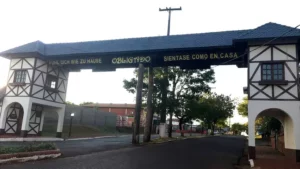Share
With breathtaking lyricism, ” The Eldorado ” written by Laurent Gaudé plunges us into the story of different people, who, geographically speaking are very far apart but at the same time close, because they are all linked by their experiences of what we might call today the phenomenon of migration.
The first story is that of Salvatore Pirracci, an Italian coastguard at the head of a crew charged with tracking down – and if necessary, rescuing – boats or cargo ships loaded with immigrants off the coast of Sicily. In parallel, we follow two Sudanese brothers as they set off for the Libyan coast, taking the irregular migration route, leaving family, friends, and everything they’ve never known to embrace their dream of settling in Europe and enjoying a better future.
Both stories share a kind of road strewn with pitfalls, punctuated by strokes of fate and (un)fortunate encounters.
One of the first themes to emerge from the text is the loss of identity initiated by the ‘clandestine’ crossing of borders and the break with the idea of home.
“Aucune frontière ne vous laisse passez sereinement. Elles blessent toutes.”
“There are no borders that let you pass serenely. They all hurt.”
– Eldorado from Laurent Gaudé
From a social scientist’s perspective, this can lead to interesting studies of how actors, in and throughout their migration process, before, during, and after movement negotiate and experience the loss of sense of belonging, home, and (in)visibility in host and/or transit countries.
Moreover, another important theme arising from the book and drawn deeply by the author inside the eyes and hearts of its characters is an uncountable amount of willingness and hope that encourages people to make the step and start their migration journeys.
A similar idea can be found in a migration studies’ ethnography over young aspiring male migrants in Egypt. The article argues that in order to overcome “existential stuckedness”, a condition emerging from modern capitalism for more and more people, hope for a better life is essential to initiate the process of movement ( Harry Petit, Wiebe Ruijteneberg: 2019). However, the study also shows that at the core of the existential experience, both before and
after movement, lies the experience of constant oscillation between “amal” ( hope ) that the good life is arriving and “ikti’ab” ( an Egyptian understanding of depression ) when an obstacle is met ( Harry Petit, Wiebe Ruijteneberg: 2019). According to these authors, this dynamic is caused by a “cruel” migratory regime that “perpetually offers the promise of a good life to aspiring migrants”, which can be seen for instance in the promotion of recruitment of highly skilled migrants in the European Union, “while inhibiting the means of achieving it for the majority”1.
The author finally offers us insights into a sad but nevertheless real face of migration happening on a daily well outside of the books and imaginaries of our fellow human beings. These events and the broader phenomenon known as migration today are subject to several studies by Social Scientists all over the globe

